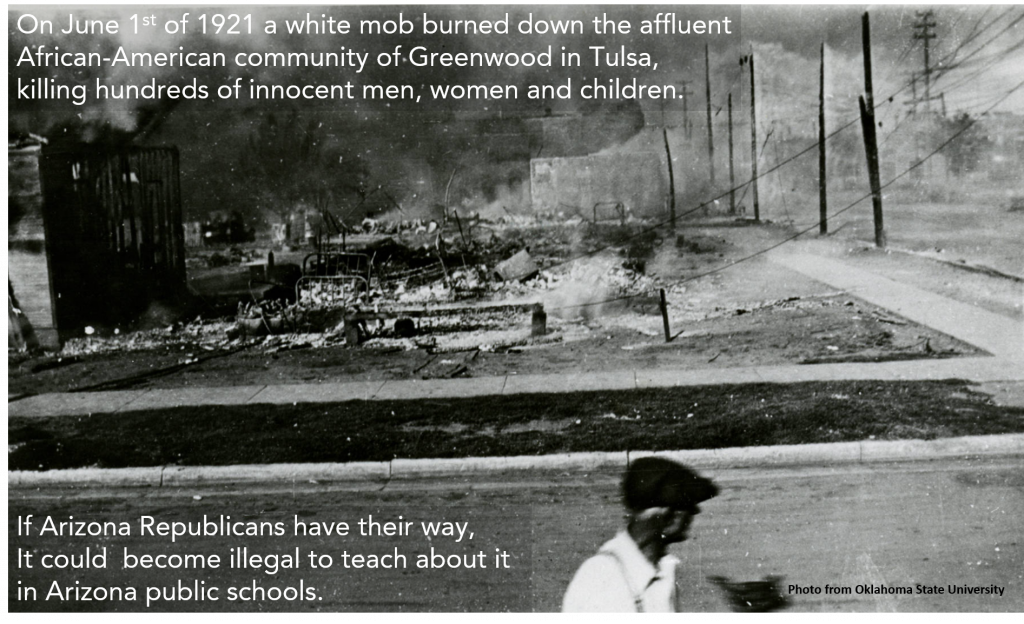
Teaching about equality without addressing the behavior that leads to inequality is like teaching about the Lincoln assassination without mentioning John Wilkes Booth. But that challenge will face public sector trainers and public-school teachers in Arizona if two bills introduced this year in the Arizona legislature make their way into law.
The bills are SB 1532, which applies to teachers, and SB 1074, which applies to public sector employee training. Both are designed to preclude any instruction regarding so-called “critical race theory,” which Education Week defines as “the core idea … that racism is a social construct, and that it is not merely the product of individual bias or prejudice, but also something embedded in legal systems and policies.”
Cornel West, in the foreword to Critical Race Theory, the Key Writings that Formed the Movement, notes that critical race theory sheds light on the “seldom addressed … role of deep-seated racism in American life.” “But like all bold attempts to reinterpret and remake the world to reveal silenced suffering and to relieve social misery,” he wrote, “Critical Race Theorists put forward novel readings of a hidden past that disclose the flagrant shortcomings of the treacherous present in the light of unrealized – though not unrealizable – possibilities for human freedom and equality.”
One reality of the “treacherous present” is that much of the American white population owes its wealth to stolen labor. That wealth, whether the result of slavery, abusive share-cropper arrangements, or suppressed wages, helped to acquire property that was handed down to successive generations. Those whose wealth was stolen had little or nothing to hand down.
“In 2019 the median white household held $188,200 in wealth—7.8 times that of the typical Black household,” wrote the Brookings Institute last December. “It is worth noting that levels of average wealth, which are more heavily skewed by households with the greatest amounts of wealth, are higher: white households reported average wealth of $983,400, which is 6.9 times that of Black households.”
Systemic racism includes disparate policing, red-lining, and other practices that perpetuate the artificial imbalance of wealth between the races. Proponents of critical race theory argue it’s not possible to resolve the evils of racism without understanding the history of racism. Otherwise, we let the past eclipse the future.
Which is how Arizona legislative Republicans want it. Both SB 1532 and SB 1074 contain a section with identical wording that bans teaching certain concepts. Three of them are particularly interesting. For example, they would make it illegal to teach that “an individual, by virtue of the individual’s race, ethnicity or sex, bears responsibility for actions committed by other members of the same race, ethnic group or sex.”
Banning this information would not reduce the impact of centuries of stolen wealth. But it would prohibit teachers and trainers from talking about it. Republican legislators prefer to enjoy the wealth without questioning its origin.
It would also be illegal to teach that “an individual should feel discomfort, guilt, anguish or any other form of psychological distress because of the individual’s race, ethnicity or sex.” This is the core reason for banning critical race theory: it makes white people uncomfortable. White Republicans don’t care that ignoring systemic racism makes black people uncomfortable. They believe their group’s discomfort outweighs the other group’s discomfort. They would prevent teaching about the Tulsa race massacre of 1921 because it could make white students uncomfortable. I have three college degrees and never learned about Tulsa in school. That makes me uncomfortable.
Finally, it would be illegal to teach that “academic achievement, meritocracy or traits such as a hard work ethic are racist or sexist or were created by members of a particular race, ethnic group or sex to oppress members of another race, ethnic group or sex.” The perceived lack of such traits led to stereotypes that perpetuated racial injustice.
“Many of the stereotypes created during the height of the trans-Atlantic Slave Trade were used to help commodify black bodies and justify the business of slavery,” writes the National Museum of African American History and Culture. “For instance, an enslaved person, forced under violence to work from sunrise to sunset, could hardly be described as lazy. Yet laziness, as well as characteristics of submissiveness, backwardness, lewdness, treachery, and dishonesty, historically became stereotypes assigned to African Americans.”
Republican desire to cater to the supposed sensitivity of white people creates a censorship that extends beyond critical race theory. The Tulsa massacre would be banned from curriculum. So would information about Japanese-American internment camps. Schools would have to ignore Brown vs. Board of Education. There would be no room for Dr. Martin Luther King’s “I Have A Dream” speech or any mention of the little girls killed in the 1963 Birmingham church bombing. There could be no mention of “the trail of tears,” the story of forced Native American relocation. Could any teacher discuss the Civil War without making people uncomfortable?
Neither bill was passed into law during the current legislative session. SB 1532 failed when two Republican senators joined Democrats in opposing it. SB 1074 was a victim of Governor Ducey’s “I’m going to veto everything!” budgetary hissy fit. Both are likely to reappear and both have a good chance of passing.
Republicans in many states are pushing laws against teaching critical race theory for fear of making white people uncomfortable. They argue that such topics are controversial and would lead to social divisions – as if there were not already deep social divisions. Ignoring them will not make them go away.
The party of the elephant needs to stop ignoring the elephant in the room.
© 2021 by Mike Tully
<<< YOU CAN READ / DOWNLOAD A PDF VERSION BY CLICKING HERE >>>

Be First to Comment